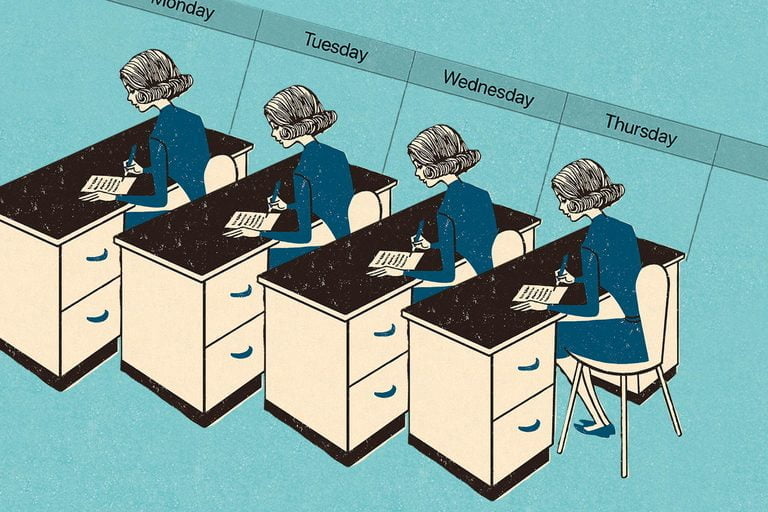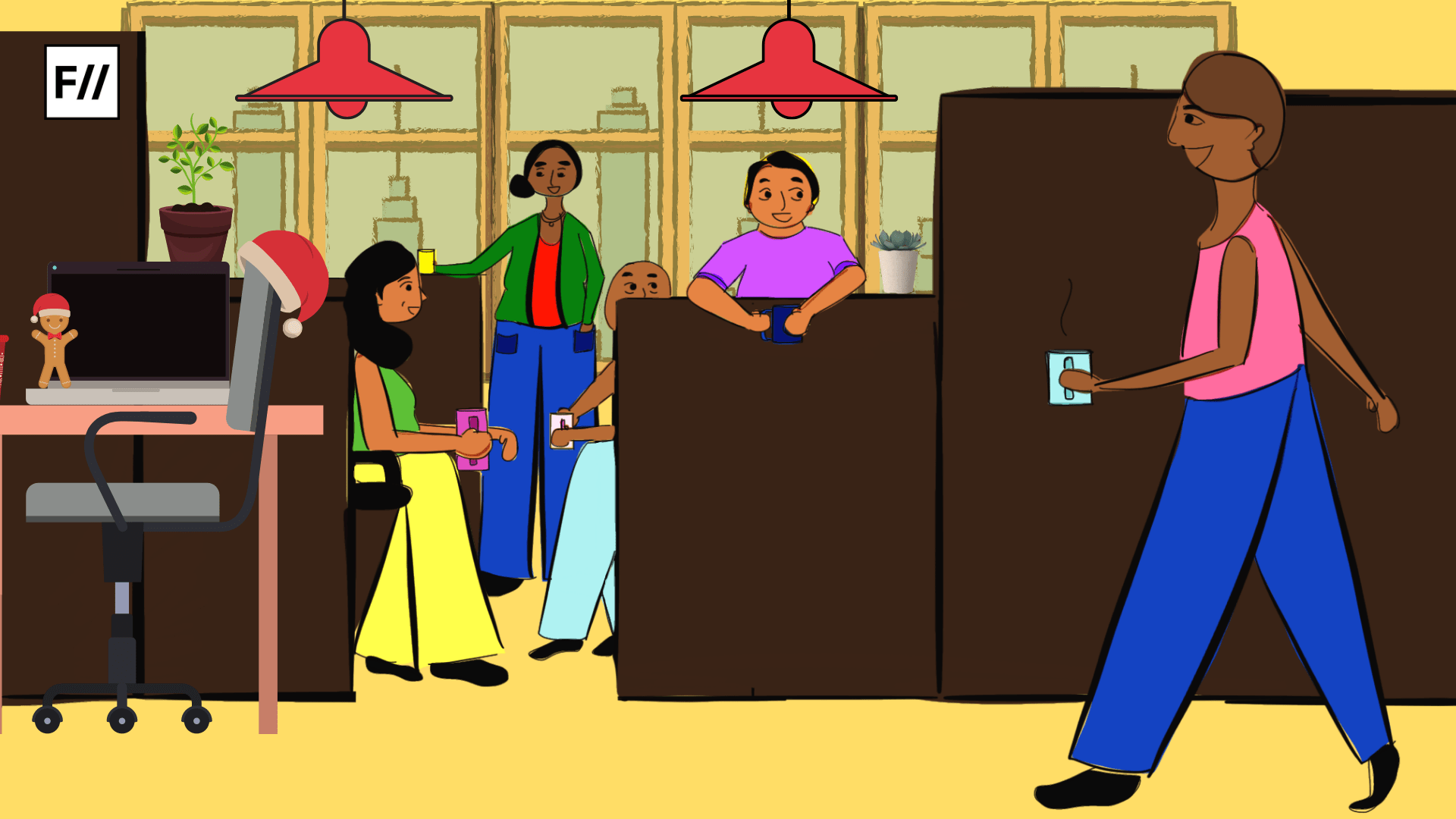Achi news desk-
The tragic news of a consultant in India dying by suicide as a result of suspected “extreme stress” at work has brought the issue of mental health in management consulting to the fore once again. Saurabh Kumar Laddha, a Pune-based professional, worked for the American consulting and professional services behemoth McKinsey & Company.
Laddha reportedly took his own life by jumping from the ninth floor of his building after returning from a trip to Ahmedabad.
Laddha was said to be under immense pressure. After joining the company, he was hired and assigned to Ahmedabad, Gujarat. Laddha reportedly took his own life by jumping from the ninth floor of his building after returning from a trip to Ahmedabad. He was living with roommates at the time.
The tragic death of Saurabh Laddha
Saurabh Kumar Laddha, a 25-year-old McKinsey & Company consultant, came home from work on February 23, 2024. Although it all seemed like a normal working day, he was quietly suffering from a battle against his mental health. That day he lost his battle to his suffering. At 11:15, Laddha jumped from the 9th floor of his apartment complex in Mumbai’s Wadala neighborhood. The jump proved fatal and he was pronounced dead at the scene. A health and police review confirmed that the suicide was caused by ‘extreme pressure in the workplace‘.
Saurabh Laddha was a graduate of IIT Madras and IIM Calcutta and has been with the strategy consulting firm since August 2022. According to media reports, the project he was involved in was mentally and physically draining. He revealed the pressure he was under on the project during his latest phone call with his girlfriend. Police also found messages which showed his admission of a toxic work culture and work pressure.
Toxic workplace culture and McKinsey
After the incident of Laddha’s suicide became public, major announcements it was dealt with, and online discussions about it increased. Some people who had worked for or were familiar with the company in question, McKinsey and Company, shared their views on the situation. One of them even described the company culture as toxic. The company has previously made headlines for a variety of reasons, including questionable ethics in its practices, such as profiting from US government contracts and protecting troubled companies.
Most recently, McKinsey & Company accused of working with authoritarian regimes around the world. McKinsey is also known for taking a high-handed approach to dealing with serious allegations and avoiding liability. Consultants accepted into the company are among the brightest minds in the country.
In response to the case, McKinsey said declared that he is deeply saddened by the news and that he prioritizes employee well-being and a supportive work culture that promotes open communication about mental health issues.
In response to the case, McKinsey said declared that he is deeply saddened by the news and that he prioritizes employee well-being and a supportive work culture that promotes open communication about mental health issues. Furthermore, the company provides a variety of support mechanisms for employees who feel overwhelmed by work-related stress.

McKinsey is working with the Indian police on this case. Laddha’s colleagues, including senior employees working on the same project, have been questioned as part of the investigation.
Less than a week after a senior journalist in Mumbai died of cardiac arrest following criticism from a colleague, this incident occurred. This development has boosted the discussion about the pressure of online work, including on LinkedIn, where many professional journeys now begin. These incidents repeatedly raise the question of whether work can remain just that, rather than becoming life in itself. It is also about tackling the issue of toxicity in the workplace, whether in newsrooms or international consulting firms and moving beyond tokenism.
The importance of open discussion on mental health and work-life balance
We need frank conversations about mental health. There should be openness in talking about the suffering you are going through mentally, the stigma that society still puts on someone who talks openly about their mental health should be removed. The prescribed norms of the supposed acceptable standards of how a person should live their life are toxic. It should be fully accepted to lead a life that does not adhere to the social timeline and resonates with a person’s individuality. Not everyone aspires to be enigmatic and highly successful. The life ideal of being balanced and healthy in all aspects should be normalized.
As we navigate the demands of modern life, achieving and maintaining a healthy work-life balance is a never-ending journey of self-discovery and adaptation. In doing this, we must remember that balancing work and life is not a one-size-fits-all endeavor; it’s about finding satisfaction in both areas rather than a strict 50/50 split. Meeting deadlines, spending time with friends and hobbies, prioritizing sleep and nutrition, and concerns about leaving work at home are all part of achieving a healthy work-life balance.

However, achieving this balance can be difficult, especially when dealing with caring responsibilities, a challenging work environment, or health issues. It can be difficult to find an unhealthy work-life balance, as long hours and stress can become normal, especially if it has been the norm for a while or within the workplace culture.
Ensuring a balance between life and work – a way forward
Recent research highlights the need for regular assessment and improvement work life balance use a five step approach to break the cycle of imbalance.
First, we must take time to think about what causes us stress and unhappiness, and how it affects our work and personal life. We need to prioritize by thinking about what is most important to us and what we might be overlooking. We often don’t reflect on these things until something significant happens.
Secondly, it is important to be aware of how we feel in our current situation and consider whether it brings us happiness or dissatisfaction. Being in touch with our emotions will help us make better decisions.
Thirdly, we need to consider re-evaluating our priorities by deciding whether sacrificing time with family for work or working on weekends negatively affects our social life.
Fourth, we should consider different options within our workplace that support our new priorities. This could include discussing the possibility of having flexible working hours, using our allocated time off, or setting boundaries such as not checking emails during weekends.

Finally, we need to make the changes we have identified, such as asking for flexible hours or using all our vacation time, to create a more satisfying work-life balance.
The recent news of the suicide of Saurabh Laddha, an IIT and IIM graduate, has questioned the work-life balance of the corporate world. A person who can handle academic pressure easily will find it difficult to handle work pressure in the corporate world. The message to all corporations and international companies is clear: they must give employees enough time to relax their bodies and minds; they are their employees, not their slaves.
The message to all corporations and international companies is clear: they must give employees enough time to relax their bodies and minds; they are their employees, not their slaves.
It also applies to employees who do not want to work in a toxic workplace environment where their health is at stake. It’s important to allow time for your health and don’t rush through the packages. Depression and worsening mental health are some of the leading causes of suicide. So, as a society, we need to make health a priority over a job.

